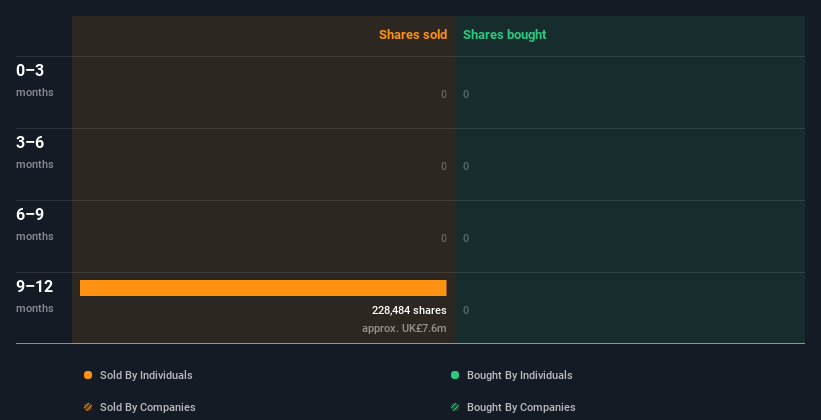- United Kingdom
- /
- Professional Services
- /
- LSE:EXPN
Insiders At Experian Sold US$7.3m In Stock, Alluding To Potential Weakness

Over the past year, many Experian plc (LON:EXPN) insiders sold a significant stake in the company which may have piqued investors' interest. When evaluating insider transactions, knowing whether insiders are buying is usually more beneficial than knowing whether they are selling, as the latter can be open to many interpretations. However, when multiple insiders sell stock over a specific duration, shareholders should take notice as that could possibly be a red flag.
While insider transactions are not the most important thing when it comes to long-term investing, we do think it is perfectly logical to keep tabs on what insiders are doing.
View our latest analysis for Experian
The Last 12 Months Of Insider Transactions At Experian
The insider, Craig Boundy, made the biggest insider sale in the last 12 months. That single transaction was for UK£7.2m worth of shares at a price of UK£31.92 each. So it's clear an insider wanted to take some cash off the table, even below the current price of UK£34.50. As a general rule we consider it to be discouraging when insiders are selling below the current price, because it suggests they were happy with a lower valuation. While insider selling is not a positive sign, we can't be sure if it does mean insiders think the shares are fully valued, so it's only a weak sign. This single sale was 77% of Craig Boundy's stake.
Experian insiders didn't buy any shares over the last year. The chart below shows insider transactions (by companies and individuals) over the last year. If you click on the chart, you can see all the individual transactions, including the share price, individual, and the date!

For those who like to find hidden gems this free list of small cap companies with recent insider purchasing, could be just the ticket.
Does Experian Boast High Insider Ownership?
Looking at the total insider shareholdings in a company can help to inform your view of whether they are well aligned with common shareholders. A high insider ownership often makes company leadership more mindful of shareholder interests. Experian insiders own about UK£60m worth of shares. That equates to 0.2% of the company. We've certainly seen higher levels of insider ownership elsewhere, but these holdings are enough to suggest alignment between insiders and the other shareholders.
So What Does This Data Suggest About Experian Insiders?
The fact that there have been no Experian insider transactions recently certainly doesn't bother us. We don't take much encouragement from the transactions by Experian insiders. But we do like the fact that insiders own a fair chunk of the company. While it's good to be aware of what's going on with the insider's ownership and transactions, we make sure to also consider what risks are facing a stock before making any investment decision. While conducting our analysis, we found that Experian has 1 warning sign and it would be unwise to ignore this.
Of course Experian may not be the best stock to buy. So you may wish to see this free collection of high quality companies.
For the purposes of this article, insiders are those individuals who report their transactions to the relevant regulatory body. We currently account for open market transactions and private dispositions of direct interests only, but not derivative transactions or indirect interests.
Valuation is complex, but we're here to simplify it.
Discover if Experian might be undervalued or overvalued with our detailed analysis, featuring fair value estimates, potential risks, dividends, insider trades, and its financial condition.
Access Free AnalysisHave feedback on this article? Concerned about the content? Get in touch with us directly. Alternatively, email editorial-team (at) simplywallst.com.
This article by Simply Wall St is general in nature. We provide commentary based on historical data and analyst forecasts only using an unbiased methodology and our articles are not intended to be financial advice. It does not constitute a recommendation to buy or sell any stock, and does not take account of your objectives, or your financial situation. We aim to bring you long-term focused analysis driven by fundamental data. Note that our analysis may not factor in the latest price-sensitive company announcements or qualitative material. Simply Wall St has no position in any stocks mentioned.
About LSE:EXPN
Experian
Operates as a data and technology company in North America, Latin America, the United Kingdom, Ireland, Europe, the Middle East, Africa, and the Asia Pacific.
Reasonable growth potential with acceptable track record.
Similar Companies
Market Insights
Community Narratives





